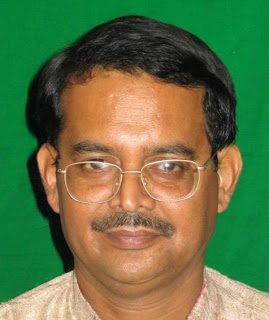K Swain, BJP MP, Orissa
“No MP named Swain stays here,” the security guard said, stunning us when we asked for Kharabela Swain’s residence. “Actually, no one knows me in this locality. You have to ask for Kalpana Parida’s home to find me!” Swain later told us when we finally traced him. “Sometimes even security guards stop me from entering my wife’s house.” He never applied for a government accommodation, nor has he bought a house in Bhuvaneshwar. “Whenever I come to the capital, I stay in Kalpana’s flat. She is working with Doordarshan and lives here with our only son,” clarified Swain.
“Sometimes even security guards stop me from entering my wife’s house.” He never applied for a government accommodation, nor has he bought a house in Bhuvaneshwar. “Whenever I come to the capital, I stay in Kalpana’s flat. She is working with Doordarshan and lives here with our only son,” clarified Swain.
Named after Orissa’s legendary ancient king Mahameghabahana Aira Kharabela, Swain, a powerful BJP politician maintains a very low profile. And his entering politics says it all. In 1988, this 1980-batch Indian Allied Services Officer quit his cushy job to join politics. “I was fed-up with the corruption and opportunism of politicians. People feel that good and honest persons can’t survive in politics. I wanted to prove them wrong. I believe in that old economic aphorism – good money drives out bad money from the market. So will it be in politics.” Kharabela’s stature as a highly articulate and active parliamentarian cuts across party lines. He always takes centre-stage in all major national debates. He is exceptionally popular in his constituency. In the last election, Kharabela polled a massive 553,087 votes and defeated his rival by 236,955 votes. And why not? During the floods last year, the first man to reach the remotest areas was their MP, not any sort of government agency.
‘My capital is people’s affection, which is much more valuable than a bungalow, car or money. I could have achieved all that, but that is not my philosophy,” says he. And bribes ever offered? “Yes, but only in my initial days as a parliamentarian. Today, everybody knows what I do. Kalpana manages all our expenses. My son has got a job through campus selection. So for what will I pile up money?”....Continue
“No MP named Swain stays here,” the security guard said, stunning us when we asked for Kharabela Swain’s residence. “Actually, no one knows me in this locality. You have to ask for Kalpana Parida’s home to find me!” Swain later told us when we finally traced him.
 “Sometimes even security guards stop me from entering my wife’s house.” He never applied for a government accommodation, nor has he bought a house in Bhuvaneshwar. “Whenever I come to the capital, I stay in Kalpana’s flat. She is working with Doordarshan and lives here with our only son,” clarified Swain.
“Sometimes even security guards stop me from entering my wife’s house.” He never applied for a government accommodation, nor has he bought a house in Bhuvaneshwar. “Whenever I come to the capital, I stay in Kalpana’s flat. She is working with Doordarshan and lives here with our only son,” clarified Swain.Named after Orissa’s legendary ancient king Mahameghabahana Aira Kharabela, Swain, a powerful BJP politician maintains a very low profile. And his entering politics says it all. In 1988, this 1980-batch Indian Allied Services Officer quit his cushy job to join politics. “I was fed-up with the corruption and opportunism of politicians. People feel that good and honest persons can’t survive in politics. I wanted to prove them wrong. I believe in that old economic aphorism – good money drives out bad money from the market. So will it be in politics.” Kharabela’s stature as a highly articulate and active parliamentarian cuts across party lines. He always takes centre-stage in all major national debates. He is exceptionally popular in his constituency. In the last election, Kharabela polled a massive 553,087 votes and defeated his rival by 236,955 votes. And why not? During the floods last year, the first man to reach the remotest areas was their MP, not any sort of government agency.
‘My capital is people’s affection, which is much more valuable than a bungalow, car or money. I could have achieved all that, but that is not my philosophy,” says he. And bribes ever offered? “Yes, but only in my initial days as a parliamentarian. Today, everybody knows what I do. Kalpana manages all our expenses. My son has got a job through campus selection. So for what will I pile up money?”....Continue



